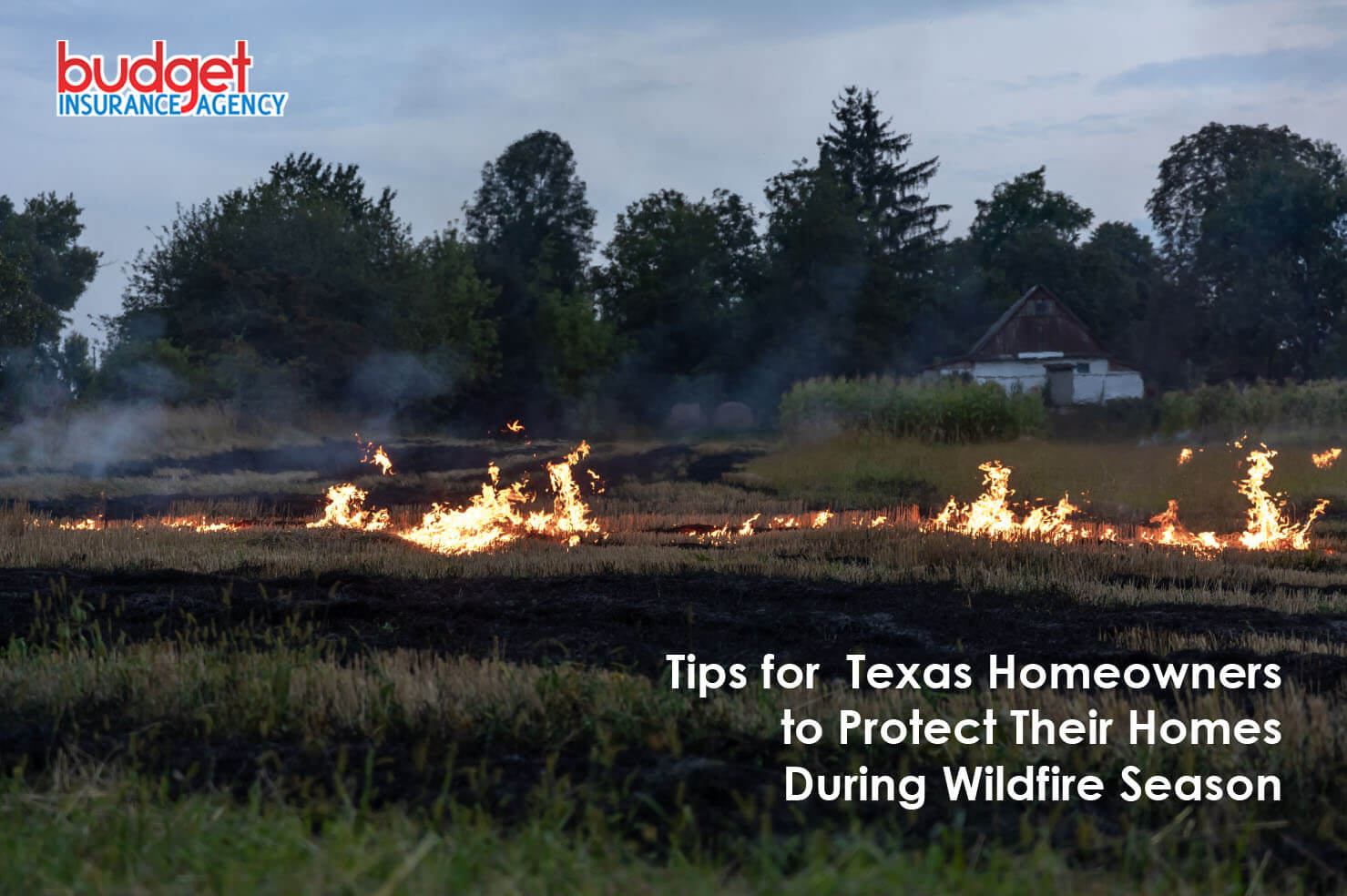
Wildfire season in Texas poses significant risks to homeowners, with the potential for devastating property damage and loss. As temperatures rise and dry conditions prevail, Texas homeowners must take proactive measures to protect their homes against wildfires. Beyond physical safeguards, such as creating defensible space and maintaining fire-resistant landscaping, homeowners must also ensure that their home insurance policies provide adequate coverage for wildfire-related damage.
1. Create Defensible Space:
-
Clear vegetation and debris from around the home, creating a buffer zone known as defensible space.
-
Maintain a minimum of 30 feet of space around the house, keeping grass short, pruning trees, and removing dead vegetation.
-
Trim tree limbs that overhang the roof and clear gutters of leaves and debris to prevent ember ignition.
2. Harden Your Home:
-
Use fire-resistant building materials for roofing, siding, and decking to reduce the risk of ignition.
-
Install ember-resistant vents and screens to prevent embers from entering the home through vents.
-
Seal gaps and openings in the home's exterior to prevent ember penetration and reduce the likelihood of fire spreading.
3. Maintain Landscaping:
-
Choose fire-resistant plants for landscaping and maintain them regularly by removing dead vegetation.
-
Create a well-irrigated zone around the home with moisture-retaining plants to act as a natural fire break.
-
Keep lawns hydrated and mowed short to reduce fuel for wildfires and create a barrier between the home and surrounding vegetation.
4. Prepare for Evacuation:
-
Develop a wildfire evacuation plan and communicate it with family members, neighbors, and emergency contacts.
-
Pack essential items such as important documents, medications, clothing, and pet supplies in a "go bag" for quick evacuation.
-
Identify multiple evacuation routes and stay informed about wildfire developments and evacuation orders through local authorities and emergency alerts.
5. Review Your Home Insurance Policy:
-
Regularly review your home insurance policy to understand your coverage limits, deductibles, and any exclusions related to wildfires.
-
Consider adding endorsements or riders to your policy to enhance coverage for wildfire-related risks, such as landscaping restoration or additional living expenses.
-
Ensure that your policy provides adequate coverage for the replacement cost of your home and personal belongings in the event of wildfire damage.
6. Communicate with Your Insurance Provider:
-
Maintain open communication with your insurance provider to discuss your coverage needs and any changes to your property.
-
Notify your insurance provider of any updates or renovations to your home that may affect your coverage requirements.
-
Inquire about discounts or incentives for implementing wildfire mitigation measures, such as installing fire-resistant roofing or upgrading home security systems.
Conclusion:
Wildfire season presents significant challenges for Texas homeowners, but with proactive planning and preparation, you can better protect your home and ensure that your insurance coverage meets your needs. By creating defensible space, hardening your home, preparing for evacuation, reviewing your insurance policy, and communicating with your insurance provider, you can enhance your resilience to wildfires and minimize the financial impact of potential losses. Remember that investing in wildfire preparedness and insurance protection is an investment in the safety and security of your home and family.
We're Here When You Need Us:
Your Trusted Partner: Budget Insurance Agency
Looking for a personalized budget homeowners insurance policy in Texas? Look no further! At Budget Insurance Agency, we understand the importance of protecting your home and belongings without breaking the bank. Let us help you find the perfect insurance solution to safeguard your home and provide you with peace of mind. Contact us at 855-218-6308 or request an online quote right now!
